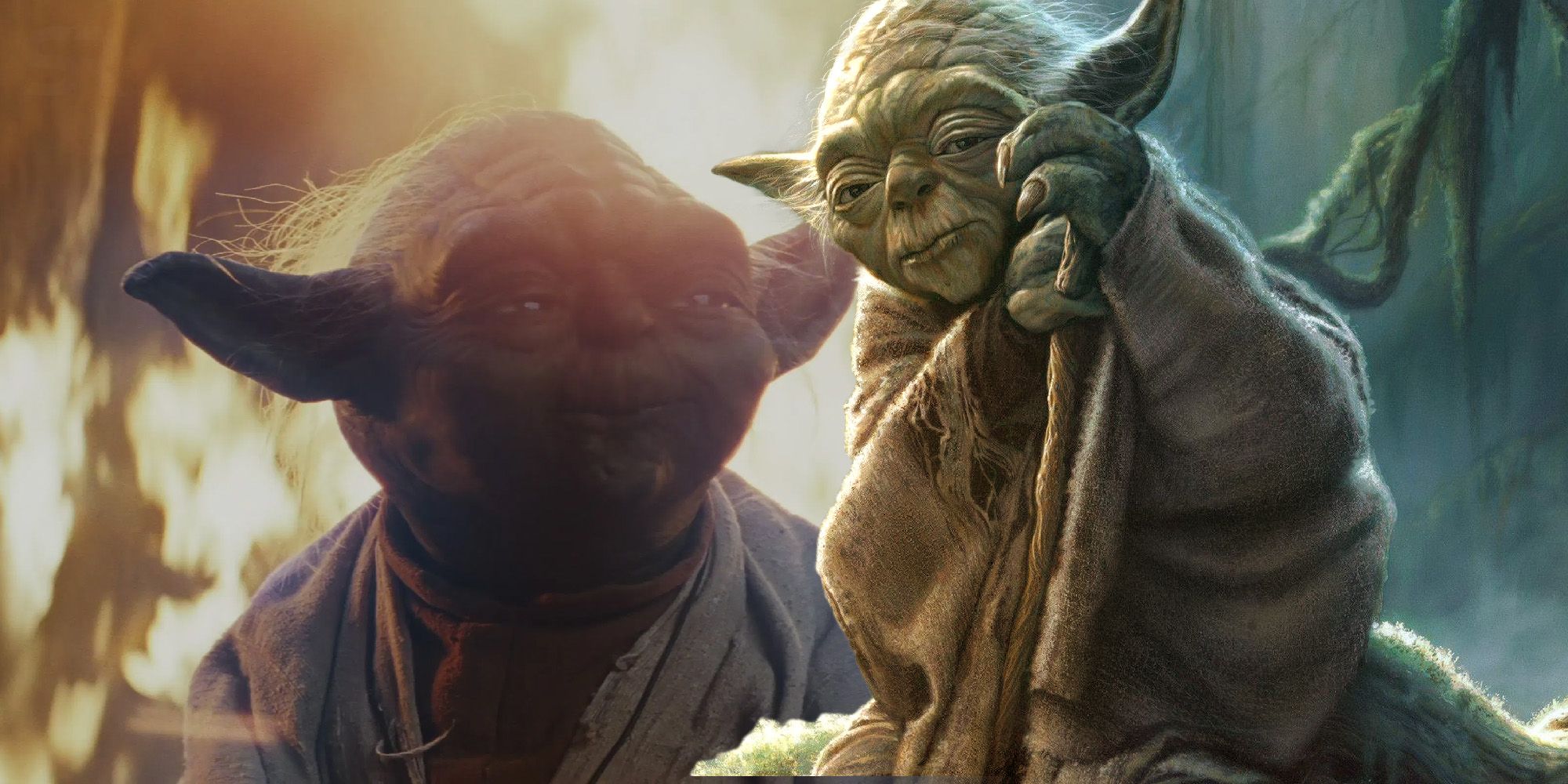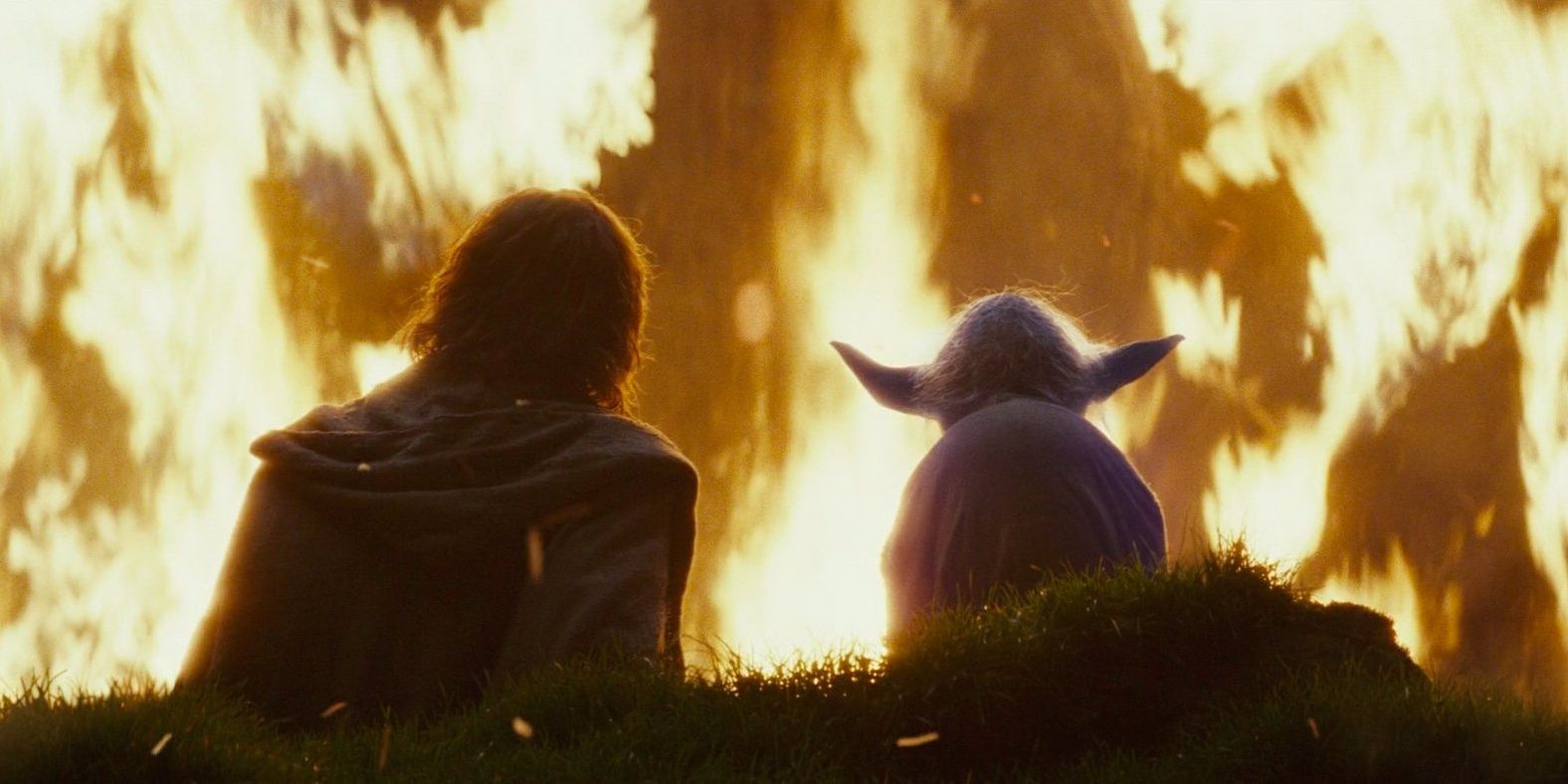
Jedi Grandmaster Yoda returned as a Force Ghost in Star Wars: The Last Jedi, and this version of the character was the best (and wisest) teacher seen in any Star Wars movie. Rian Johnson's controversial 2017 movie was divisive in many ways, but the appearance of Yoda was perhaps one most fans could enjoy, marking the legendary Jedi's return to the saga and connecting to its deeper themes alongside his former student, Luke Skywalker.
First introduced in The Empire Strikes Back, before dying in Return of the Jedi and then being fleshed out further in the prequel trilogy, Yoda has long been respected as being among the most powerful of the Jedi Order, and indeed Force users of any kind. Alongside that, he's famed for his wisdom, with Yoda having trained countless Jedi over the years. But while Yoda has always been a fascinating and important character, and Jedi teachings have similarly been a key part of many Star Wars movies, The Last Jedi took this to a whole new level.
Yoda's teachings have always had some depth, but what The Last Jedi does so well in his Force Ghost scene with Luke is package all of them together, reflecting back on Yoda's history, Luke's arc, and what has happened to the Jedi Order. In The Empire Strikes Back, Yoda proclaims, "that is why you fail." But in The Last Jedi, the very idea of failure itself is recontextualized, and given new meanings for all involved, including what it must have meant to Yoda back then. In the prequels, Yoda was blind to the rise of the dark side until it was too late; in the original trilogy, he helped train Luke as the new hope for the galaxy; in The Last Jedi, Yoda looks back upon those and casts his eyes to the future, in a scene that is packed with power and emotion.

Here, viewers really get to understand what it means to be a Jedi Master, and the great burdens they bear for their students, as Yoda says: "We are what they grow beyond." It's an idea baked into the fabric of Star Wars ever since Obi-Wan Kenobi allowed Darth Vader to strike him down in the very first movie, with the promise of becoming more powerful than he could imagine, but fully realized and brought to life in a moving way. It is Yoda truly recognizing his own failures, Luke's, and that of the Order as a whole, which in turn ties into the fact that failure is one of Star Wars' strongest themes - except this turns the concept into a strength as much as a weakness, and a core part of what it means to be a Jedi. This carries a universal sense of wisdom to it that extends far beyond the reaches of Star Wars, because it is also Yoda telling audiences what it is to be a human being, and to learn from experiences good and bad.
Kylo Ren says, in The Last Jedi's most quoted (and misunderstood) moment, "Let the past die." Yoda offers the flip side of the same idea here: "Time it is, for you to look past a pile of old books," he tells a despondent Luke, who believes the Jedi Order needs to end. This is Yoda, the 900-year-old Jedi Grandmaster who has long served as the symbol of the Order itself, recognizing something he had not truly before: not only that the Jedi Order had failed, but that it needed to change, to be re-born, but not, as Luke thought, to die (note that deliberate phrasing from Yoda, which is very different from what Luke and Kylo both suggest). The Yoda Force Ghost scene in The Last Jedi carries with it both the legacy and future of the entire Order and the weight of the Star Wars franchise's complete history, and it is this moment that serves to allow both, through the eventual final act of its greatest hero, to push forward into something new. That it does so in a scene so beautifully written, shot, and acted (from Mark Hamill and Frank Oz), tops it off, and cements it as the best Jedi Master moment, and one of the best scenes in general in the saga.
from ScreenRant - Feed https://ift.tt/2GZ9hIa






0 Comments
Please don't use vulgar comments and avoid discussion on Religious matters